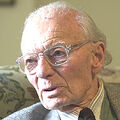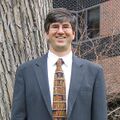Template:Selected anniversaries/July 15: Difference between revisions
No edit summary |
No edit summary |
||
| (16 intermediate revisions by the same user not shown) | |||
| Line 1: | Line 1: | ||
<gallery> | <gallery> | ||
File:Buzjani.jpg|link=Abu al-Wafa' Buzjani (nonfiction)|998: Mathematician and astronomer [[Abu al-Wafa' Buzjani (nonfiction)|Abū al-Wafā' Būzjānī]] dies. His ''Almagest'' was widely read by medieval Arabic astronomers in the centuries after his death. | File:Buzjani.jpg|link=Abu al-Wafa' Buzjani (nonfiction)|998: Mathematician and astronomer [[Abu al-Wafa' Buzjani (nonfiction)|Abū al-Wafā' Būzjānī]] dies. His ''Almagest'' was widely read by medieval Arabic astronomers in the centuries after his death. | ||
File:Inigo Jones.jpg|link=Inigo Jones (nonfiction)|1573: Architect [[Inigo Jones (nonfiction)|Inigo Jones]] born. He will be one of the first architects of the early modern period to employ [[Vitruvius (nonfiction)|Vitruvian]] rules of proportion and symmetry in his buildings. | File:Inigo Jones.jpg|link=Inigo Jones (nonfiction)|1573: Architect [[Inigo Jones (nonfiction)|Inigo Jones]] born. He will be one of the first architects of the early modern period to employ [[Vitruvius (nonfiction)|Vitruvian]] rules of proportion and symmetry in his buildings. | ||
File:Vilfredo Pareto 1870s.jpg|link=Vilfredo Pareto (nonfiction)|1848: Engineer, sociologist, economist, political scientist, and philosopher [[Vilfredo Pareto (nonfiction)|Vilfredo Pareto]] born. He will apply mathematics to economic analysis, asserting that the distribution of incomes and wealth in society is not random and that a consistent pattern appears throughout history, in all parts of the world and in all societies. | File:Vilfredo Pareto 1870s.jpg|link=Vilfredo Pareto (nonfiction)|1848: Engineer, sociologist, economist, political scientist, and philosopher [[Vilfredo Pareto (nonfiction)|Vilfredo Pareto]] born. He will apply mathematics to economic analysis, asserting that the distribution of incomes and wealth in society is not random and that a consistent pattern appears throughout history, in all parts of the world and in all societies. | ||
File:Wilhelm Wirtinger.jpg|link=Wilhelm Wirtinger (nonfiction)|1865: Mathematician [[Wilhelm Wirtinger (nonfiction)|Wilhelm Wirtinger]] born. He will contribute to complex analysis, geometry, algebra, number theory, Lie groups and knot theory. | File:Wilhelm Wirtinger.jpg|link=Wilhelm Wirtinger (nonfiction)|1865: Mathematician [[Wilhelm Wirtinger (nonfiction)|Wilhelm Wirtinger]] born. He will contribute to complex analysis, geometry, algebra, number theory, Lie groups and knot theory. | ||
File: | File:Derek Taunt.jpg|link=Derek Taunt (nonfiction)|2004: Mathematician [[Derek Taunt (nonfiction)|Derek Taunt]] dies. He worked as a codebreaker at Bletchley Park during World War II. Taunt was assigned to Hut 6, the section in charge of decrypting German Army and Air Force Enigma signals. After his wartime work, he returned to Cambridge, and worked on group theory. | ||
File:John Riedl.jpg|link=John T. Riedl (nonfiction)|2013: Computer scientist and academic [[John T. Riedl (nonfiction)|John T. Riedl]] dies. He was a founder of the field of recommender systems, social computing, and interactive intelligent user interface systems. | File:John Riedl.jpg|link=John T. Riedl (nonfiction)|2013: Computer scientist and academic [[John T. Riedl (nonfiction)|John T. Riedl]] dies. He was a founder of the field of recommender systems, social computing, and interactive intelligent user interface systems. | ||
</gallery> | </gallery> | ||
Latest revision as of 05:56, 30 April 2022
998: Mathematician and astronomer Abū al-Wafā' Būzjānī dies. His Almagest was widely read by medieval Arabic astronomers in the centuries after his death.
1573: Architect Inigo Jones born. He will be one of the first architects of the early modern period to employ Vitruvian rules of proportion and symmetry in his buildings.
1848: Engineer, sociologist, economist, political scientist, and philosopher Vilfredo Pareto born. He will apply mathematics to economic analysis, asserting that the distribution of incomes and wealth in society is not random and that a consistent pattern appears throughout history, in all parts of the world and in all societies.
1865: Mathematician Wilhelm Wirtinger born. He will contribute to complex analysis, geometry, algebra, number theory, Lie groups and knot theory.
2004: Mathematician Derek Taunt dies. He worked as a codebreaker at Bletchley Park during World War II. Taunt was assigned to Hut 6, the section in charge of decrypting German Army and Air Force Enigma signals. After his wartime work, he returned to Cambridge, and worked on group theory.
2013: Computer scientist and academic John T. Riedl dies. He was a founder of the field of recommender systems, social computing, and interactive intelligent user interface systems.





